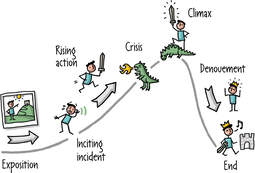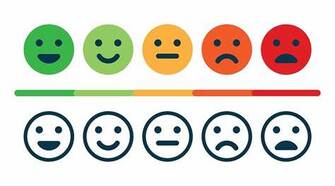 Write the book you want to read. It’s a bit of advice most authors have been given at some point in their writing career. But what does it actually mean? On the surface it suggests that if you would like to read the book you wrote, then others would too, but that is a very subjective thing. I like historical fiction, but not everyone does. OK, we could narrow that definition down to something a little bit more specific then: Write the historical fiction book that you would want to read. Actually, that wouldn’t work for me. Because, while I enjoy reading historical fiction, I’m not so keen on writing it.  The main reason is all the research that is necessary for writing historical fiction. Readers of that genre usually know quite a bit about the period they follow and it only needs a small mistake for them to take the author to task. I know, because I’m one of the first to send emails to authors pointing out the errors they make. Research, however, is very time consuming and I’d much rather be getting on with doing the writing. I do research when I have to; most authors do. But I don’t want the research to take longer than writing the book and that is often the case with historical fiction. But the upshot is that while I really enjoy reading historical fiction, I don’t think ‘ll be writing too much of it. Well, that was a short blog wasn’t it?  Actually, I haven’t made my point yet. Because the book that I want to read is one that engages me and makes me want to read more of the same, regardless of genre. And I find that I get sent far too few of those. What that tells me is that some authors aren’t really writing for the benefit of their readers, they’re writing for their own benefit. Which means, as a publisher, I’m going to have a hard job selling their book. I’m not saying the books are actually bad, as such. Good and bad are subjective terms, after all. But what I am saying is that if I’m not engaged, I’m not enjoying the book and if I’m not enjoying it, I’m not going to finish it. And if I don’t finish it, then I’m not going to read anything else by the same author. Which is not good if the author wants to make a living from their work. And that's not good for me as a publisher, because I can't make a profit from publishing an author whose books don't sell. So, why am I not engaged with these books?  sketchy character sketchy character It comes down to the characters. They are usually too sketchy for me to take any interest in them. They have no depth, no substance. I can’t believe in them as real people. And if I can’t believe in them, I don’t care too much whether they live or die, or whether they live happily ever after or whatever is supposed to happen to them. So I close the book (or switch off my Kindle) and I look for something more interesting to read which does allow me to engage with the characters. This is mainly the problem with plot led novels.  plot led novels plot led novels The author has spent so much time creating what they think is an exciting or intriguing plot, and not enough time developing characters that I can care about. Because, even if the character is suspended over a fiery pit with the rope about to burn through and send him (or her) plummeting to their death, I don’t care enough about them to find out if they live or die. Let me give you an example. I care about my friends. Why? They aren’t relations so we don’t share DNA which needs to be passed to future generations, they don’t have any connection to me that makes any difference to my life. So why do I care whether my friends live or die?  Because I have engaged with them at an emotional level. I know their family history. I know how they got the scar on their elbow when they were 7 years old. I know how they nearly died in a car crash when they were 11. I know how they feel about their family, their spouse and their pets. I know that if I’m in trouble they will come and help me if they can and even if they can’t help, they’ll offer their emotional support. I know when they are feeling happy and I know when they are feeling sad, even though they may be trying to appear happy. I know what jokes I can tell that will make them laugh and they know the same about me. I know how to make them happy and how I could make them sad if I’m not careful; and they know the same about me.  And that’s how I want to know my characters: with that degree of detail. And far too many authors don’t let me feel that. They’ll provide a back story, because they know that is important, but the back story itself is too shallow: where the character was born, what sort of schooling they had; what they work at and maybe what sort of leisure activities they enjoy. But that isn’t ‘knowing’ them. To know someone you have to be able to see inside their head. Perhaps authors feel that if they reveal too much about a character then they will reveal too much about themselves. After all, many readers believe that characters in books resemble the author in some way. If that is the way the author feels, then they are in the wrong job, because writing is about baring your soul to the world. Because it is emotions that people actually engage with. We feed off the emotions of others the way a vampire feeds off the blood of their victims. We do that in real life (but not as vampires I hope) and we want to do it when we read books. But if the characters don’t have any emotional depth, then we can’t feed off them.  So, my point is that if you want to write the sort of book that you want to read, you have to be able to write about emotions, because that is what people actually engage with. The reader has to be able to feel a character’s happiness, their fear, their hopes, their dreams and their aspirations. So, my advice to any author would be to Google a list of human emotions and make sure your characters feel a selection of them. That way the reader will feel them and they’ll engage with the characters; they’ll care about them. And once they care about the characters, there is no way the reader will be able to put the book down before they have finished and, when they have finished, they’ll be begging the author for more. So, to re-phrase my opening statement: write the emotionally engaging character led book that you want to read. Not so snappy, I know – but more meaningful. If you have enjoyed this blog or found it informative, why not make sure you don't miss future editions by signing up for our newsletter. Just click the button below. We promise not to spam you and you can unsubscribe at any time.
0 Comments
Leave a Reply. |
AuthorThis blog is compiled and curated by the Selfishgenie publishing team. Archives
March 2025
|
 RSS Feed
RSS Feed